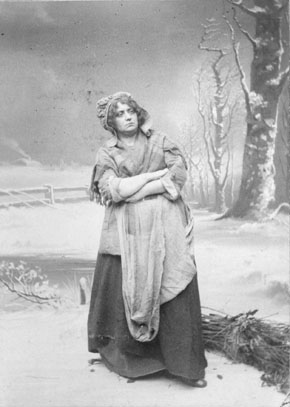Rotterdam theater playbills (1791-1887) > About the collection

The theater playbill collection belonged to the archives of the Vereeniging Rotterdamsche Schouwburg (1851-1888). When this association was liquidated in 1887, its archives were donated to the Rotterdam Municipal Archives.
The colorful bills are of interest not only to theatre historians, but also to genealogists. The bills bear the names of many actors who were related to each other. Once in a while, they feature a name like Sarah Bernhardt (still a child), who has not been forgotten to this very day. Art historians and designers can use these playbills to follow developments in the graphic arts almost from day to day. They can see how hand-painted bills, printed in lead type on rag paper, slowly give way to larger-sized bills made of lighter and more delicate paper and printed in wood type. Sometimes they include beautiful lithographs, woodcuts and engravings. Notable is the frequent use of the so-called Western type that was to become very popular again in the twentieth century, chiefly in the 1970s.
The basis of this collection is formed by a nineteenth-century manuscript that is the subject of a number of exercise books. The titles in these books – often in English, French and German – are sometimes accompanied by notices on performances, mentions of catcalls and jeering by the audience and the like. The collection totals some 10,000 playbills printed between 5 November 1791 and 4 September 1887. Since there was often more than one performance a day, the number of titles and notices runs to 15,540.
To facilitate searching the collection, it was decided to standardize the data in some way. Next to the bills themselves (some of which are occasionally listed twice) all the ‘strips’ attached to the bills have been included as well. These strips bear notices – sometimes even handwritten – for instance about an actor being unable to play because of a ‘sudden indisposition’ or a performance being cancelled due to the King’s death or foul weather. Sometimes the notice attached to a bill was about performances at a later date. If a performance had been cancelled and replaced by a different one, the database lists the original title accompanied by the text ‘no performance’.
